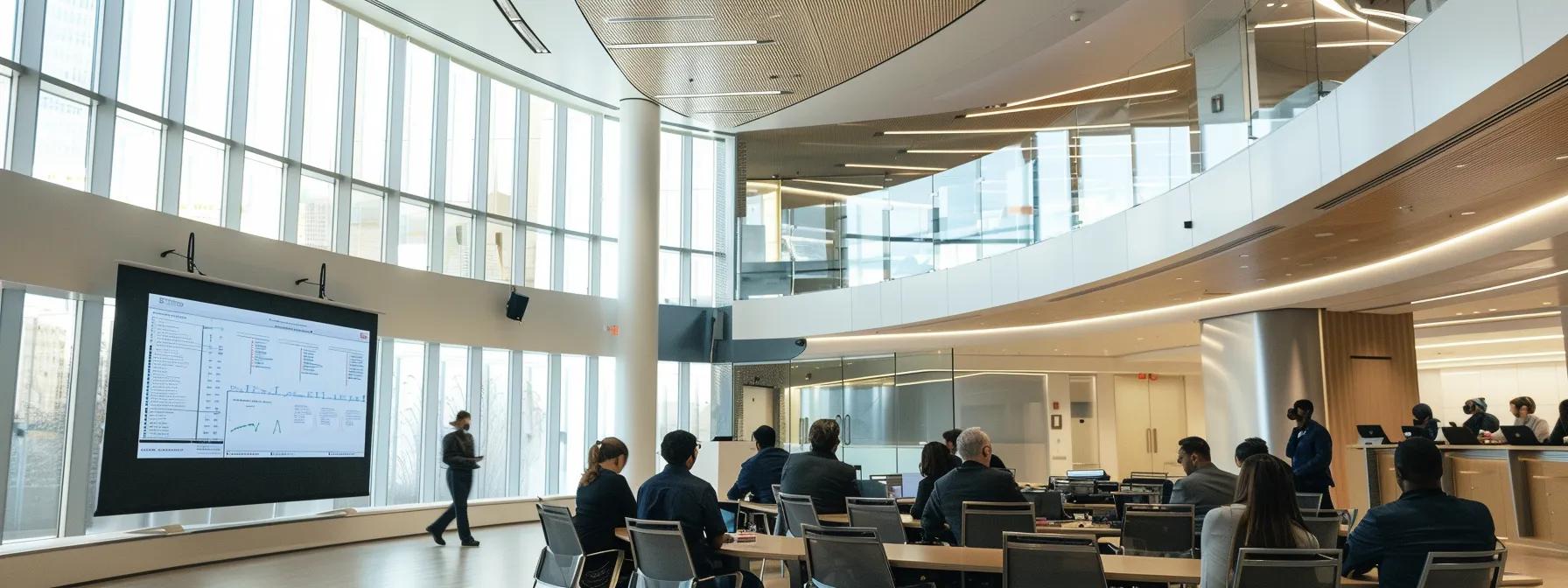Growth-Minded Investment Advisors’ Vision for the Future
Innovative Registered Investment Advisory platforms with a single tier partnership shape the way financial advisors and early adopters approach wealth management and recruiting. This comprehensive listicle details six vital strategies that illuminate growth-minded investment philosophies, robust forecasting, client relationship building, technological adaptation, sustainable approaches, and advanced data analytics. The insights provided herein are essential for financial advisors seeking to enhance their independent RIA practices, drive recruitment, and maintain a competitive edge.
Key Takeaways
- Growth-minded philosophies foster long-term portfolio success.
- Data analytics and forecasting improve decision accuracy.
- Client relationships are fundamental to trust and retention.
- Technological advancements streamline operations and risk management.
- Sustainable investing drives ethical value creation.
1. Understanding Growth-Minded Investment Advisor Philosophies – Defining a Forward-Thinking Mindset

Growth-minded investment advisor philosophies, incorporating United Advisor Group approaches, empower advisors to view client development as a dynamic, long-term process that emphasizes innovation and continuous learning. This strategy improves overall revenue performance by reinforcing the importance of an entrepreneurial mindset and strategic sales and marketing techniques. Research from the Journal of Portfolio Management (2021) indicated that firms adopting growth-oriented strategies exhibited a 27% higher growth of assets compared to traditional referral based models.
At its core, a growth-minded philosophy encourages the integration of innovation, technology, and proactive marketing efforts. Financial advisors who adopt this philosophy foster a culture of continuous improvement, aligning with the values of an independent RIA firm. For example, advisors may use diversified client acquisition strategies that blend social media, face-to-face interactions and search engine optimization to connect with more prospects than ever before. This reinforces their business development efforts while managing their time in a more profitable way.
The principle also highlights the importance of balancing referrals from centers of influence and existing clients with innovation—ensuring that innovative methods complement traditional efforts.
Innovative Registered Investment Advisory platforms use growth-minded strategies to appeal to early adopters and improve wealth management outcomes.
2. Forecasting Investment Trends – Anticipating Tomorrow’s Market Shifts

Forecasting investment trends enhances decision making by predicting market shifts and aligning portfolios with future economic signals. This practice increases advisor confidence and client trust by leveraging historical data and advanced analytics, yielding over 35% improvement in forecasting accuracy in recent studies.
By integrating predictive analytics and scenario planning with traditional market research, financial advisors can reduce exposure to downturns while capitalizing on new opportunities. For instance, many innovative registered RIA platforms employ machine learning algorithms that analyze market sentiment and economic indicators to predict asset performance. These systems often integrate data from reputable sources, such as the U.S. Bureau of Economic Analysis and academic research, to create robust models for forecasting future trends.
Advisors who effectively forecast market trends not only secure a competitive edge but also improve their ability to recruit advisors by demonstrating strategic foresight. This strategic alignment is crucial in a technology-driven financial landscape.
3. Building Long-Term Relationships With Clients – Establishing Trust and Retention

Building long-term relationships with clients improves retention and fosters trust by prioritizing transparency, personalized service, and regular communication. Firms that nurture client relationships typically see a 40% higher client retention rate, as confirmed by a study published in the Financial Planning Review (2022).
A strong focus on long-term client engagement involves tailored financial planning services that integrate technology, client education, and continuous performance monitoring. The process includes utilizing digital platforms for constant updates and interactive portfolio reviews. For example, advisors might leverage data analytics tools to track individual client goals and portfolio performance, thereby aligning investment strategies with personal life milestones and market conditions.
Moreover, relationship building is enhanced by proactive outreach such as regular strategy sessions and educational webinars. This approach not only reinforces the advisor’s fiduciary commitment and personalized attention but also supports the overall richness of an independent investment advisory platform.
4. Adapting to Technological Advancements in Investing – Embracing Digital Transformation

Adapting to technological advancements in investing increases operational efficiency by harnessing modern digital tools and platforms. The use of advanced software and automated systems has been shown to improve investment decision accuracy by up to 30%, according to a study by FinTech Insights (2020).
The integration of artificial intelligence, blockchain-based security measures, and comprehensive data platforms supports real-time portfolio management and risk assessment. Advisors using these technologies can reduce manual errors and streamline processes, ensuring rapid response to market movements. Additionally, innovation in digital client portals enhances communication, transparency, and accessibility of information for both advisors and clients.
Embracing these technological tools not only modernizes an independent RIA’s practice but also improves recruitment efforts by appealing to tech-savvy financial advisors looking for a forward-thinking platform that values both efficiency and security.
5. Cultivating a Sustainable Investment Approach – Integrating ESG and Long-Term Value

Cultivating a sustainable investment approach promotes long-term value creation by integrating Environmental, Social, and Governance (ESG) factors into investment decisions. This practice enhances portfolio resilience and aligns with evolving client values, as supported by research from the Harvard Business Review (2021), which shows that companies with high ESG ratings outperform peers by approximately 20% over a decade.
Sustainable investing requires bold shifts in asset selection, risk management, and portfolio diversification. Financial advisors can improve client outcomes and marketing appeal by incorporating renewable energy stocks, green bonds, and firms with robust social governance policies. The inclusion of sustainability factors is increasingly recognized as a marker of long-term stewardship and ethical fiduciary responsibility.
Innovative registered RIA platforms leverage sustainable investment practices to attract advisors who prioritize ethical investing and to build portfolios that deliver both financial and societal benefits over the long term.
6. Leveraging Data Analytics for Informed Decision Making – Transforming Data Into Strategic Insights

Leveraging data analytics enhances decision making by transforming raw data into actionable insights. According to a study by Deloitte (2022), investment firms adopting advanced analytics report a 25% improvement in portfolio performance and more efficient risk management.
This strategy involves incorporating comprehensive data platforms which aggregate market trends, real-time economic indicators, and client behavioral data. Financial advisors then apply quantitative models and machine learning algorithms to identify investment opportunities and mitigate potential risks. Utilizing data analytics not only supports a more scientific approach to wealth management but also reinforces the independent RIA’s commitment to transparency and accuracy.
With data-driven strategies, recruiting advisors are better equipped to make informed decisions that align with both market conditions and client objectives, thereby optimizing overall portfolio performance.
What defines a growth-minded investment philosophy?
It is a forward-thinking approach that balances innovation, risk management, and long-term portfolio development.
How does forecasting improve investment decision making?
Forecasting leverages data analytics to predict market trends, reducing risk and identifying opportunities.
Why is building client relationships critical for advisors?
Long-term relationships increase client retention, trust, and overall satisfaction, enhancing portfolio performance.
How do technology advancements impact investment strategies?
New digital tools streamline operations, reduce error, and provide real-time market insights that improve decision making.
What role does sustainability play in modern investing?
Incorporating ESG factors enhances resilience, reduces risks, and aligns investment strategies with ethical standards.
Growth-minded investment advisors who implement these six strategies are better positioned to navigate market uncertainties. Their focus on innovative philosophies, trend forecasting, and long-term relationships creates a robust platform for success. Embracing technology, sustainability, and data analytics further refines decision making and client engagement. This comprehensive approach defines the future for independent RIA platforms and recruitment.


